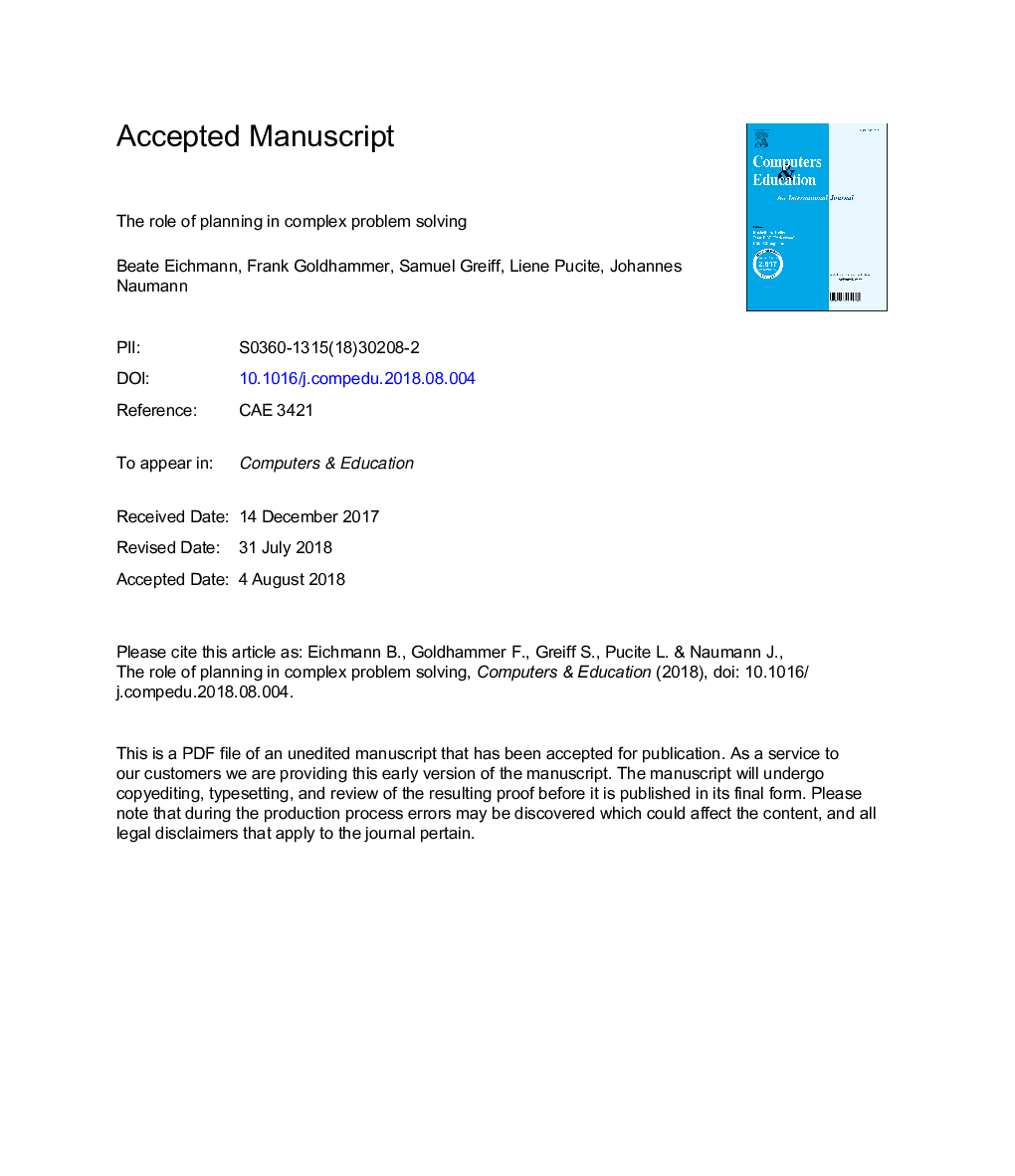| Article ID | Journal | Published Year | Pages | File Type |
|---|---|---|---|---|
| 10225634 | Computers & Education | 2019 | 37 Pages |
Abstract
Complex problem solving (CPS) is a highly transversal competence needed in educational and vocational settings as well as everyday life. The assessment of CPS is often computer-based, and therefore provides data regarding not only the outcome but also the process of CPS. However, research addressing this issue is scarce. In this article we investigated planning activities in the process of complex problem solving. We operationalized planning through three behavioral measures indicating the duration of the longest planning interval, the delay of the longest planning interval and the variance of intervals between each two successive interactions. We found a significant negative average effect for our delay indicator, indicating that early planning in CPS is more beneficial. However, we also found effects depending on task and interaction effects for all three indicators, suggesting that the effects of different planning behaviors on CPS are highly intertwined.
Related Topics
Social Sciences and Humanities
Social Sciences
Education
Authors
Beate Eichmann, Frank Goldhammer, Samuel Greiff, Liene Pucite, Johannes Naumann,
